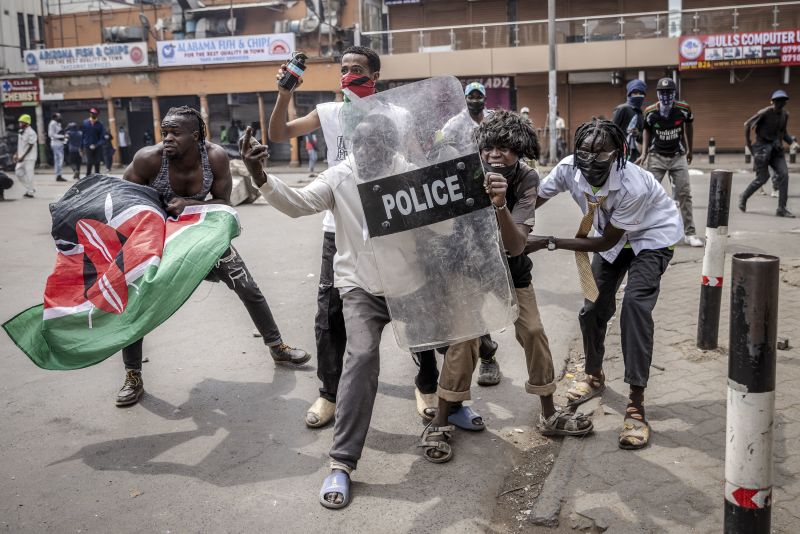As the deadly unrest in Kenya enters its sixth week, protesters have escalated their resistance, vowing to seize the country’s main airport. Their defiance underlines an increasingly pressing political crisis fuelled by widespread dissatisfaction and a backdrop of persistent economic and social challenges.
Jomo Kenyatta International Airport, located in the capital city Nairobi, has been identified by protesters as their next target. As the largest and busiest airport in East and Central Africa, it serves as a crucial trade and travel hub. Disrupting its operations is expected to both draw international attention to the ongoing strife and exert economic pressure on the Kenyan government.
The protesters are largely driven by grievances that include high unemployment rates, rampant corruption, political exclusion, and economic mismanagement. The demonstration seeks to voice out these frustrations to a government they perceive as unresponsive and detached from the plight of the average Kenyan. Clashes with security forces have, however, resulted in naming this unrest as deadly, with instances of brutality and an alarming increase in fatalities.
Despite these risks, protesters remain unfazed and determined, embracing the ethos of Harambee, a Swahili term meaning “all pull together,” which also serves as the national motto. Galvanised by community leaders, human rights activists, and opposition figures, protesters view the potential airport takeover as an unignorable manifestation of their determination for substantial political reform and socio-economic justice.
Authorities have already intensified security around the airport territory and other key infrastructure, signaling tensions could reach new heights. In a likely anticipated response, the government brands these protests as unlawful, led by those who seek to destabilize the country.
Human rights organizations like Amnesty International and Human Rights Watch sound alarms over the state’s response to these protests. Reports of excessive force by law enforcement authorities, arbitrary detentions, and violations of protesters’ rights raise extensive concerns over the democratic state of the nation.
Furthermore, the international community has its eyes keenly fixed on Kenya amid these escalating tensions. The United Nations (UN) and African Union (AU) have urged for dialogue and called for restraint from both the government and protesters, emphasizing the need for a peaceful resolution.
Therefore, the vow to seize the airport may not merely be an escalation tactic, but a desperate plea for acknowledgment, reform, and resolution. Protesters, enduring the crisis for over a month, signal their refusal to relent in the face of adversity.
Affected Kenyans hope for swift ends to the challenges sparking this unrest. However, protestors consistently and persistently enforce that until genuinely viable solutions are implemented, the demonstrations and resistance will continue to escalate.
Only time will tell the outcome of this crisis, but what stands clear is the determination of the Kenyan protesters. Their stand at the doorstep of Jomo Kenyatta International Airport is not just about disruption but a symbolic assertion of democratic rights, a plea for justice and change. Only comprehensive political and social reforms will resonate as a success with those standing tall on the front lines of this ongoing civil unrest.




